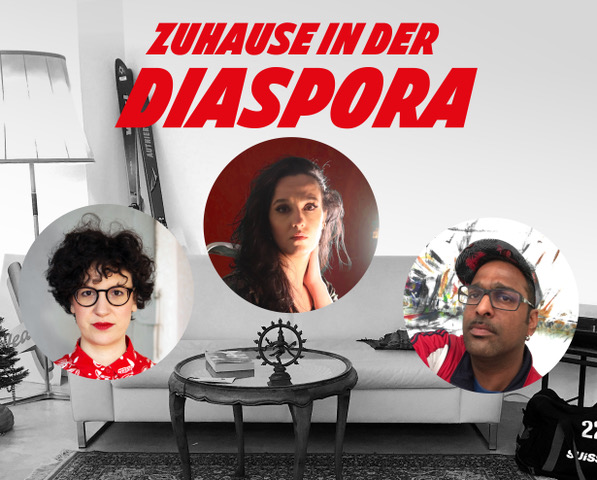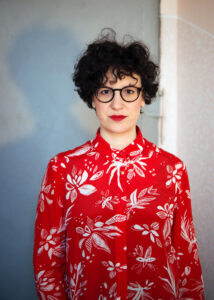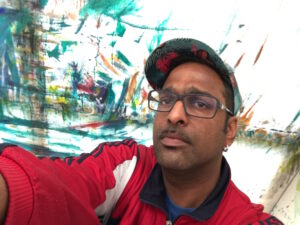TUE
6.12.22
19:00

Zuhause in der Diaspora
Living room reading with Luna Abou-Kheir and Ivna Žic
The two authors Lubna Abou-Kheir and Ivna Žic have been working together as a literary tandem for 2 years.
On a poetic-political evening, the two women meet in a cosy diasporic living room atmosphere with social anthropologist Rohit Jain for chai and snacks. Through their texts and conversations, a space emerges in which they create living, working, speaking, writing in the diaspora as a self-conscious normality. Thoughtful, multi-voiced, funny and proud.
A cooperation of: Institute for Social Anthropology and Center for Global Studies of the University of Bern, Weiterschreiben Schweiz and Dampfzentrale Bern.
Free admission.
Bio
 |
Lubna Aboul-Kheir studied theatre in Damascus. She has been living and working in Switzerland as an author and actress since 2016. She made her debut as a playwright in Switzerland with the play «Damaszener Café» at the Theater Tuchlaube in Aarau. Since then she has written three plays in German and other short prose texts. Recently, Lubna starred in the short film «The Odor of Orange», which is nominated for the final at the Amarcort Film Festival. | |
 |
Ivna Žic was born in Zagreb and grew up in Zurich. She studied Applied Theatre Studies, Acting Direction and Scenic Writing in Giessen, Hamburg and Graz. She has worked as a freelance playwright and director at the Maxim Gorki Theater Berlin, Schauspielhaus Wien and Theater Neumarkt, among others. She was also an in-house playwright at the Lucerne Theatre. In 2019, her debut novel «Die Nachkommende» was published and nominated for both the Austrian and Swiss Book Prizes. | |
| Lubna Abou-Kheir and Ivna Žic wrote and realised “Gebrochenes Licht” at Theater Neumarkt in 2019. They continue to work together in the programme Weiterschreiben Schweiz. | ||
 |
Rohit Jain is a PhD social anthropologist and artistic researcher from Bern. He is interested in strengthening postcolonial and postmigrant spaces through collective interventions. Rohit works at the Institute for Social Anthropology in Bern and is active in the collective Berner Rassismusstammtisch and in the long-term artistic-ethnographic project Schwarzenbach Complex on a multi-voiced, anti-racist politics of memory. | |
→ Ticket info
→ Program
→ Newsletter
→ Ticket info
→ Program
→ Newsletter
→ Ticket info
→ Program
→ Newsletter
→ Ticket info
→ Program
→ Newsletter
→ Ticket info
→ Program
→ Newsletter
→ Ticket info
→ Program
→ Newsletter
→ Ticket info
→ Program
→ Newsletter
→ Ticket info
→ Program
→ Newsletter
→ Ticket info
→ Program
→ Newsletter
→ Ticket info
→ Program
→ Newsletter
